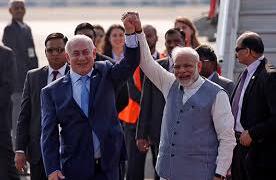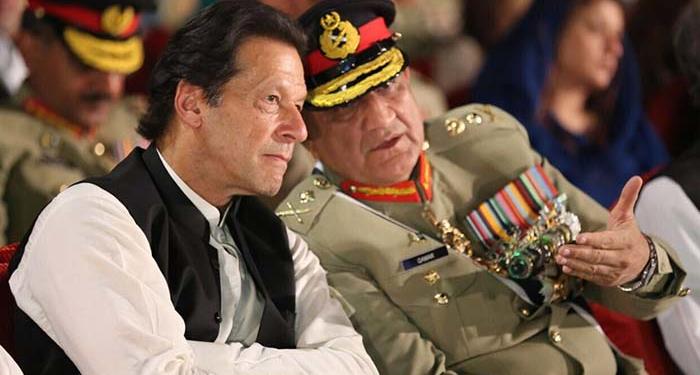Political regimes in Pakistan tend to be vulnerable to trouble in border areas. Whenever the country lost a war with India, either the military took over from democratically elected regimes or transferred power to democratically elected leaders. When India under Narendra Modi scrapped article 370 and bifurcated Jammu and Kashmir into two union territories, Pakistan faced a devastating geopolitical loss. After having invested decades on fuelling unrest in Kashmir, radicalizing the youth, exporting terror and funding terrorist groups in India, Pakistan has ended up back in square one with the politician-terrorist nexus virtually uprooted by Modi government. Therefore, at this point the Pakistan establishment and the people of the Islamic republic are fuming and the chances of change in the Pakistan regime have increased. Imran Khan, the leader of PTI who was ‘elected/selected’ 1 year ago has been under great pressure to take retaliatory action against India, and since Pakistan has failed to improve its economic situation, it is in no position to wage war on India.
The Pakistan Prime Minister Imran Khan who has had full military support (before and) after he was elected because the armed forces played a great role in his election, has taken many steps to channel the anger he has been receiving from the domestic audience and opposition towards India.
Imran khan has downgraded diplomatic ties with India and suspended bilateral trade. The Pakistan government also suspended the two train services between both countries- the Samjhauta Express and Thar Express services and the Delhi-Lahore bus service. Pakistan also sent back Indian High Commissioner, Ajay Bisaria to give a strong message to India and around the world in an attempt to paint a war-like situation in the region.
However, now the domestic audience is obviously not happy with these insignificant steps which will not hurt India. They want some concrete step from the Army’s ‘selected’ Prime Minister which could be seen as ‘counter’ to India’s big move in Kashmir. The opposition leaders have called him the weakest PM Pakistan has ever seen. So, when the Imran Khan government arrested Maryam Nawaz, daughter of Nawaz Sharif, it was met with huge protests from the opposition and the slogan ‘Modi se tu darta hai, Maryam se tu ladta hai’ which literally translates into ‘Modi you fear but Maryam you fight’, has been gaining traction.
The popularity of Imran Khan is at an all-time low in the last one year. The people who saw that Imran khan and the Armed forces are on same lines in National Security and foreign policy are also questioning why the Army is not taking any concrete step. Therefore the credibility of Army is in question due to ineffectiveness of Imran Khan.
As per an article by Abhijit Iyer Mitra in ThePrint, “Pakistan would resort to some outrageous action in order to refocus the international community. Today, thanks to satellite-based open-source intelligence (OSINT), we can predict that a similar operation is quite possibly underway.” Mitra used three satellite images to show that such an operation is underway and Pakistan could launch an offensive against India.
However, the real question is that whether Pakistan armed forces would continue with Imran Khan as Prime Minister despite the fact he is being seen as ‘weak leader’ or sacrifices him as scapegoat. If the Pakistan armed forces carry a coup and dispose Khan from the post, they can tell the domestic audience that he was ineffective and as the Armed Forces are now in power, some real action can be expected and the losses in Kashmir can be reversed.
Imran Khan will not be the only one to face the wrath of the extremist forces in Pakistan if there’s a coup. The political history of Pakistan has many such precedents. In 1958 when the democratic government failed to control the riots and asked for military help, the armed forces instigated a coup and snatched the power. The country was under the leadership of two military generals namely Ayub Khan (1958-1969) and Yahya Khan (1961-1971). When Pakistan lost 1971 war to India, Yahya khan was disposed to pave the way for politicians and former foreign affairs minister Zulfikar Ali Bhutto.
A few years later, Bhutto was disposed by another Military general Muhammad Zia ul Haq who ruled the country with iron fist for more than a decade till 1988. In 1999 too, chief of army staff Pervez Musharraf disposed democratically elected Nawaz Sharif on the pretext of Kargil war. Therefore, Pakistan has a long history of the elected leaders being disposed in favor of Military generals during war, pretext of or after war. So, it is very likely that Military chief Qamar Javed Bajwa will dispose Imran khan as scapegoat if the people’s anger does not simmer down.




























